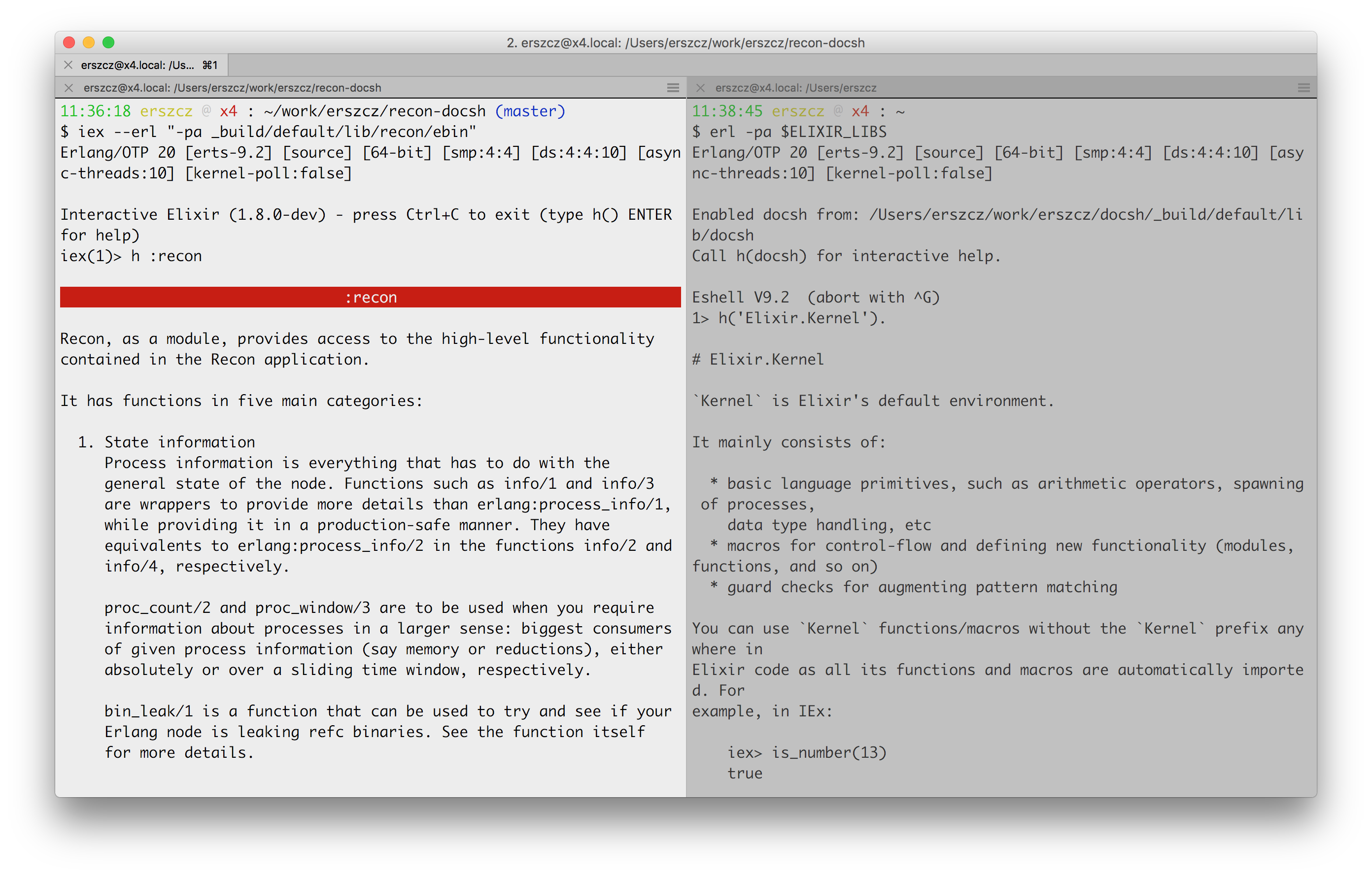Description
EEP 48 proposes a documentation format for BEAM languages. I've authored docsh - a library compiling source code documentation to the proposed Docs chunk format. docsh also extends erl with helpers enabling access to this documentation.
Here's a screenshot showing the interop between Elixir (today's 1.7.0-rc.0) and Erlang with docsh (>=0.6.0):
One hypothetic future use case, thanks to the shared format, is using ExDoc with non-Elixir projects.
Now once EEP 48 support is in place I think it's time to expose the project to the broader community - a Hex package is already available. Listing rebar3_docsh in the official Rebar3 documentation would definitely help, too.
It's important to point out that the majority of OTP documentation is not stored in EDoc (the only format docsh can read currently), but in out-of-source OTP SGML. OTP team might change their build system to bundle the docs in EEP 48 format - it would benefit not just Erlang, but Elixir, LFE, Efene, and Alpaca users, too - but they probably have to be convinced that there's enough interest.
What do you think?
